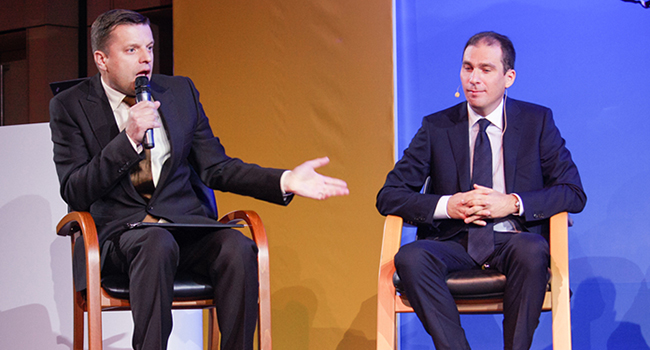Executives are the faces of their companies. For better or for worse, when the media turns to your company for a statement or a response, executives will be the spokespeople who tell the company’s story.
In today’s world of social media and the 24/7 news cycles, communicating well with the media can seem like an overwhelming task. Fortunately, communication skills, like other skills, can be learned and improved.
And, for executives who are called to be spokespeople, that’s good news. In light of today’s media world, executives need to be able to communicate effectively with a variety of audiences. In media interviews – whether conveying good news about their company’s performance, products or services, or discussing a serious problem – executives need confidence and competence to succeed.
Media training for executives can help them – and your company – succeed by communicating well.
So, what are the benefits of media training for executives?
1. Media training for executives can help to showcase your company message
Executives are blessed and cursed with a little bit of knowledge about a lot of things. Knowing a little bit about everything is beneficial for executives as they help to keep everything in their companies running smoothly, but it can hurt them when they need to stay on company message during media communications.
Reporters will often ask questions that are designed to steer the conversation off track towards topics that they feel may make for interesting stories. Because executives have a bit of knowledge, they may feel compelled to answer – but they also may not have the detailed knowledge to answer with total accuracy.
With media training, executives can learn how to avoid distractions and focus in on your company’s message. Not only will this help them as they navigate communication with the media, but it will also help your company to better represent its message to the public.
2. Media training can help you be ready to communicate in a crisis
Because executives tend to be the faces of the companies they lead, they also tend to be the first spokespeople that the media will turn to in the event of a crisis.
Even if an executive generally feels comfortable speaking to the media, communicating during a crisis can be a completely different experience. There is the added urgency of quick and accurate communication, and the added pressure of knowing that the public is hanging on your company’s every word. In football, it’s the difference between the standard offense and the two-minute drill.
Crisis media training for executives allows you to be prepared for these situations. Just like a football team prepares for urgent situations in practice, media training allows executives to practice for crisis communication situations before they occur.
When a crisis does arise, executives who have participated in media training will be much better equipped to communicate clearly and effectively – and that will reflect well on your organization.
3. Executive media training can help to build trust and reputation.
Finally, media training for executives can also help you to ensure that your company’s trust and reputation remain intact.
Again, executives represent your company to the media and to the public. Far too many companies have been staffed with hardworking employees and driven by solid strategies, only to be undermined by careless communication from top-level executives.
One of the more infamous cases of this during the past decade took place during the BP oil spill. BP’s CEO at the time, Tony Hayward, was widely criticized for telling a reporter that, “there’s no one who wants this thing over more than I do. I’d like my life back.” The comment came to symbolize Hayward’s insensitivity and selfishness – and, by association, the company’s shortcomings, as well.
Today, over half a decade later, BP is still working to overcome the impact that the crisis and its aftermath have had on the company’s reputation.
Media training can help executives be prepared to communicate well during a crisis, in ways that show empathy and assuage public anxiety. Executives who can communicate well go a long way towards ensuring that your company maintains its public trust.
Next Steps for Media Training for Executives
While media communication can seem intimidating, the good news is that communication skills can be honed, practiced, and improved – just like any other skill. For executives, this practice is a necessity as they represent your organization to the media and the public.
At The Ammerman Experience, we’ve been training executives from global companies to communicate well for over 40 years. To learn more about our media training services for executives, get in touch with us online or at 281.240.2026.

